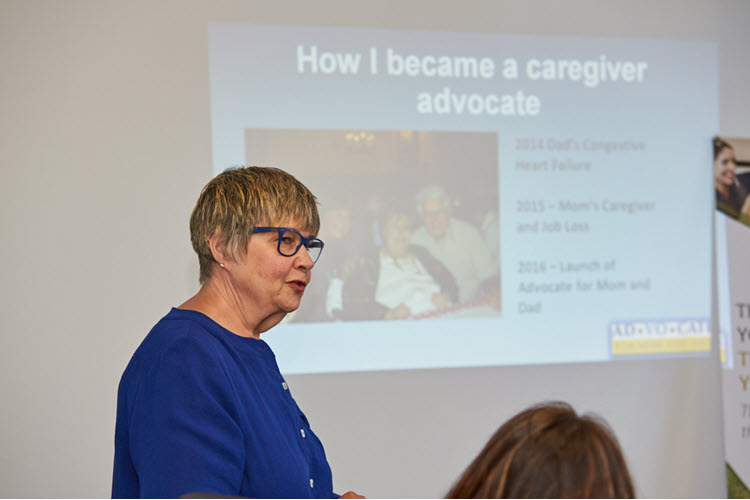2023 was the year when, for the first time, I was able to really concentrate on my business. It feels good to see everything that was accomplished and gratifying to look back at the family caregivers whose lives I was able to touch. It felt like I was finally reclaiming my life.
So, if 2023 was such a good year, why was the start of 2024 hard personally and professionally? Why did I find myself “languishing”, a term that describes feeling somewhat joyless and aimless? Why couldn’t I hit the ground running to continue booking opportunities to talk with family caregivers and begin outlining the third book I want to write? Why did it feel like too much of an effort to see family and friends? To network with colleagues?
When I closed the family trust in January, I was hit with a wave of grief so big I could no longer keep myself busy to ignore it. I did not expect this simple act to affect me so deeply. Keeping the trust open was a tangible link to my parents. It was a testament to all that my dad had done to keep my mother solvent for as long as possible and all I had done to take care of her and keep her safe. Once that link was gone, the elephant in the room had to be acknowledged. My parents were gone and they were not coming back.
I have certainly written and spoken about grief, which is so much a part of caregiving. But delayed grief was not something I expected. Delayed grief is the feeling associated with a loss that occurs for weeks, months or even years after the event.
What led me to identify delayed grief? Because the physical symptoms, like difficulty concentrating, withdrawing from social activities, lack of motivation and feeling overwhelmed, were all the things I was feeling and they could not be ignored. What I have come to realize is that keeping busy with work in 2023 was either the cause of my delayed grief or a symptom of it.
Needing time to process your emotions is one reason for delayed grief. Mom died suddenly and I did not give myself the time to come to terms with it. Work and several vacations to visit family resulted in such busyness that there was no space to process my emotions.
My feelings caught up with me this year and I am grateful for the insight I had when I closed the trust. It was both a reminder that I had not given myself the time to truly acknowledge the loss of my mother and father. It was a trigger that has forced me to sit in my grief and give myself permission to let go of the crutch the busyness of life can be for me.
I would love to hear how you are dealing and processing your grief, either through the loss of your care partner or the grief you are feeling during your caregiving journey.
Disclaimer: The material in this blog is for educational purposes only. It is not intended to replace, nor does it replace, consulting with a physician, lawyer, accountant, financial planner or other qualified professional.
Deb is the author of “Your Caregiver Relationship Contract and “A Relationship Contract for Dementia Caregivers.” Your Caregiver Relationship Contract is available in both English and Spanish. It explains how to have an intentional conversation and the how unspoken expectations can cause problems during caregiving. A Relationship Contract for Dementia Caregivers explains how important it is to learn how your person wants to live their life out and how you, the caregiver are the most important person in this relationship, giving you tips and tricks for this journey. Click here to learn more about Your Caregiver Relationship Contract or here for the Spanish version: Su Contrato de relación como cuidador de un ser querido. Click here to learn more about A Relationship Contract for Dementia Caregivers
Deb is available as a caregiver consultant. She will answer the question: “Where do I start?” and find the resources to alleviate your stress. If you would like to invest a half hour to learn how she can help you, please contact her at: Free 30 minute consulting call

